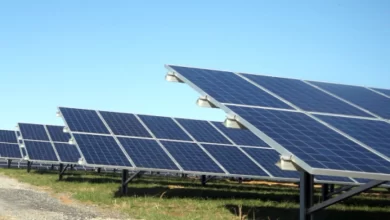
Zambia President Hakainde Hichilema said that he will engage his Zimbabwean counterpart, President Emmerson Mnangagwa over the use and management of the Hydroelectricity power plant at Kariba Dam.
Both Zambia and Zimbabwe are experiencing debilitating power cuts due to reduced electricity generation because of the low water in the dam.
Speaking after his tour of the dam on Sunday, Hichilema suggested that poor engagements between the two countries were partly to blame. He said in a tweet:
Many factors have contributed to our current state of low electricity generation but most importantly, systems and information sharing, including optimal use of this shared resource are being largely ignored. We will engage all stakeholders about this.
Speaking after the tour addressing power generation stakeholders in Siavonga, Zambia, the other side of Kariba, Hichilema said:
“My counterpart [Mnangagwa] on the other side may have a view slightly different from mine. That’s okay, that’s fine. But I believe he too will be concerned; I will be speaking to him tonight [Sunday] or tomorrow [Monday].
For the Zambezi River Authority, we need to engage now in a formal meeting between Zambia and Zimbabwe, the relevant stakeholders, we will ask our foreign ministers to call for a meeting so that we can have a family conversation away from the media.
[The meeting will be] mainly to work together, not to polarise each other. We want the best for Zimbabwe, and I believe Zimbabwe wants what’s best for Zambia.”
Lake Kariba is managed by the Zambezi River Authority (ZRA), a corporation jointly and equally owned by the governments of Zambia and Zimbabwe. ZRA falls under the management of the ministers of energy and finance from both countries.
ZRA’s CEO Munyaradzi Munodawafa told Hichilema that Zambia’s power utility, ZESCO, followed the 2022 programme on power generation, but Zimbabwe’s ZESA did not.
He bemoaned the fact that ZRA does not have access to inlets where the power generation is done, hence it cannot stop ZESCO or ZESA from using the river to generate electricity beyond their allocations.
Zimbabwe operates the Kariba South Bank Power Station, which has an installed capacity of 1,050MW, while Zambia operates the Kariba North Bank Power Station which has an installed capacity of 1,080MW.


























